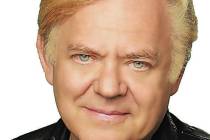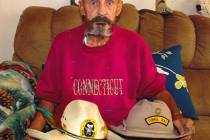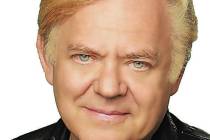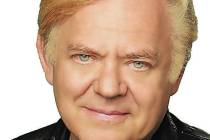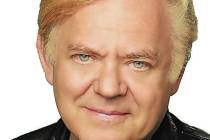Should regional VA office head south?
Last month, Las Vegas City Hall was the site of a meeting focusing on how effective the Department of Veterans Affairs’ regional benefits office in Reno is serving Southern Nevada veterans. The VA Reno field office is one of the most underperforming in the nation, and the hearing examined what changes need to be made to better serve veterans in the state.
Rep. Dina Titus, D-Nev., is the ranking member of the VA subcommittee, and she hosted the two-hour field hearing with Rep. Jon Runyan, R-N.J., chairman of the House Veterans Affairs Subcommittee on Disability Assistance and Memorial Affairs. The hearing included two panels. The first one, “Complications of Geography: Focusing on VBA Outreach, Accessibility, Leadership and Staffing Efforts to Meet the Needs of Veterans Living in Areas Remote From a Regional Office,” included Willie Clark, Western area director of the VA’s Veterans Benefits Administration, and Edward Russell, the VA’s director of the Reno regional office, Veterans Benefits Administration.
Runyan and Titus questioned Clark and Russell regarding the underperformance of the Reno office. If there are more veterans living in Southern Nevada, why is the office in Reno?
That is a question that has been asked numerous times by veterans in the Las Vegas area, and Titus herself has brought that up in past hearings with local veterans.
Clark’s explanation, in part, was that veterans service officers in the south assist with filing claims, and the processing is done in Reno. His comments were somewhat rambling and in my view not conclusive.
Along with that response, he noted that there are outreach events that give face-to-face meetings with veterans in rural areas in between Reno and Las Vegas, and the VA works to process older claims first, while working the new claims, using a triage. Fully developed claims are processed quicker, and there is mandated overtime to improve the backlog.
What was left unsaid is that in all likelihood the VA initially established its state office in Reno years ago because Las Vegas had yet to become the size it is now with its expanded veterans population, and because Reno is close to the capital in Carson City. Any legitimate efforts to move the office to Las Vegas would surely be met with opposition from those who live and work in the north and who have no desire to move south.
It was acknowledged that the Reno office also has an employment problem with a high turnover rate. Russell said that the hiring process has not been strong and candidates who were hired were not fully advised what the job entailed, causing them to leave after a short time. He said that has been addressed and prospective candidates are more closely advised as to the responsibilities of the positions they are applying for. As a result those recently hired are more aware of what to expect in their respective duties.
The second panel included Katherine Miller, executive director of the Nevada Department of Veterans Services; Janet Snyder, legislative chairwoman of the Society of Military Widows; and Bruce Hollinger, adjutant quartermaster of the Veterans of Foreign Wars in Nevada.
Miller spoke about the state’s Rover program that sends veterans service officers to communities in rural Nevada, supporting 17 community clusters throughout the state. She also talked about the Green Zone Network, recently established to link community resource people with veterans.
She reported that 32,000 veterans live in the state’s rural areas and the state has established telemedicine options for many of them. Concerning finances, she said tribal health clinics have been reimbursed for many primary care services provided to Indian veterans.
Hollinger complimented Congress for its support of veterans but was concerned about the wait time of as many as 90 days for appointments at the VA hospital in North Las Vegas and the fact that there is only one or two days notice for examination appointments. He said that if the veteran can not make that date for an appointment, his claim will be adjudicated without the exam. He said one veteran who had that happen was told by a scheduler, “… if the appointment wasn’t important, then why did you file a claim?” In Nevada, he said, “These are not isolated incidents.”
He also reported that when the VA leaves a telephone message, a return phone number is not left so working veterans cannot respond with required information in a timely manner. He said claims are later denied without the opportunity to provide missing evidence or clarifications.
Snyder told the subcommittee that when her veteran husband passed away in 2010, she filled out forms seeking dependency and indemnity compensation and submitted them to the Reno office, which approved them six months later.
But she said many military widows are unable to complete the forms themselves and have to seek assistance from the Las Vegas VA office. She said the women often receive poor assistance.
Snyder recounted experiences of other widows, some of whom had timely success with filing claims, and some who experienced disappointment seeking medical benefits. One written statement from a woman said the medical benefits she was denied were “desperately needed.”
Many words were spoken and many explanations given concerning the state of veterans affairs in Nevada. When the meeting was over, several veterans said they were not convinced things would change in a timely manner, and Titus remained convinced that the VA regional office should be moved to Las Vegas.
Journalist and author Chuck N. Baker is an Army veteran of the Vietnam War and a recipient of the Purple Heart. He is the managing editor of Nevada’s Veteran Reporter newspaper and the host of the “Veterans Reporter Radio Show” on KLAV 1230 AM.







